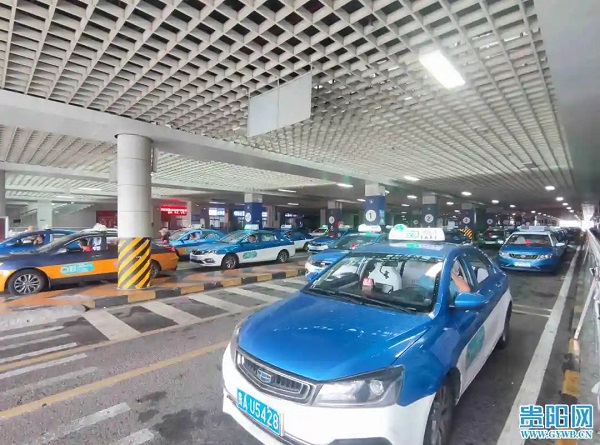Guiyang enhances tourist experience with smart transportation

Guiyang adopts an intelligent management system to ease congestion at railway stations. [Photo/Guiyang news network]
With the summer vacation season now here, Guiyang, capital of Southwest China's Guizhou province is experiencing a boom in tourism.
On the morning of July 30, Bai Ganwen, a staff member of the Guanshanhu district bureau of transportation, arrived early at the management office of Guiyangbei Railway Station to check the real-time capacity of taxis and online ride-hailing cars on the traffic operation monitoring and dispatch page in the intelligent management system.
The automatic monitoring system within the intelligent management system monitors the traffic capacity within the station and the demand for taxis in real time, automatically indicating "excess capacity" or "insufficient capacity".
Subsequently, the system will automatically arrange surrounding capacities according to preset dispatch plans and systematically disseminate information.
Staff members can also view real-time passenger flow data in the system. After analyzing the data, they can fill in the "key area dispatch report" on the system with the required number of dispatched vehicles, vehicle status, and dispatch ranges.
The system will automatically display taxi information that meets the conditions within the specified range and send messages to nearby vehicles through a dedicated network.
Through coordinated capacity dispatching, the system displays the number of taxis available for dispatch within a 3-kilometer radius. Taxi drivers will receive a message from Guiyang Transportation Commission which reads as follows: Insufficient taxi capacity at Guiyangbei Railway Station, you are closer to the station, please proceed to pick up passengers.
According to Guiyang Transportation Committee, Guiyang City and Gui'an New Area are promoting an intelligent transportation platform, including one intelligent transportation database; five application systems for intelligent roads, intelligent parking, intelligent public transportation, intelligent logistics, and intelligent management; and one intelligent transportation travel service platform.
Moving forward, Guiyang Transportation Committee will continue to optimize the system application based on usage.
For example, by constructing a real-time capacity monitoring system at Guiyangdong Railway Station taking reference from Guiyangbei Railway Station, it aims to achieve full coverage of dispatch monitoring at Guiyang Longdongbao International Airport, Guiyang Railway Station, Guiyangbei Railway Station, and Guiyangdong Railway Station.
Presented by China Daily.
黔ICP备05001922号
All Rights Reserved.
Presented by China Daily.
黔ICP备05001922号



